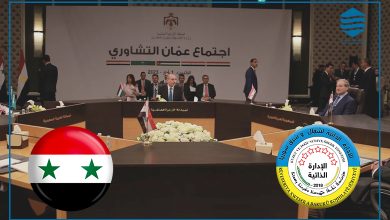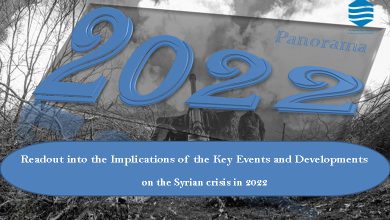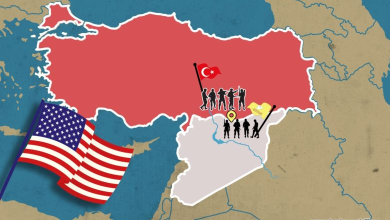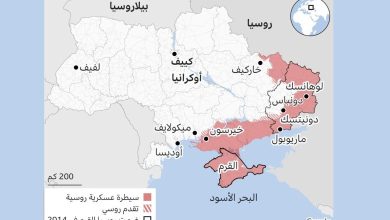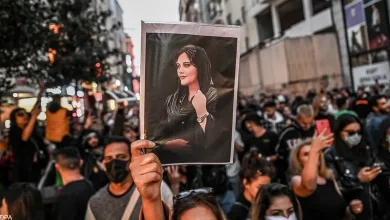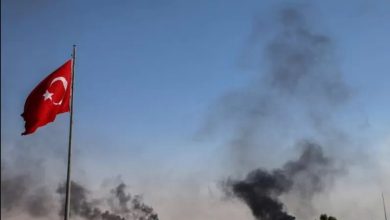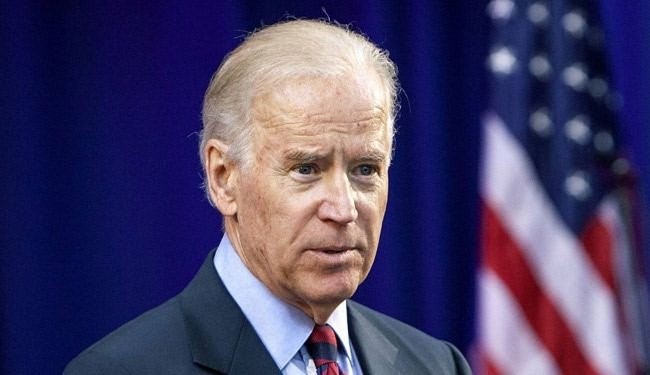
Syria … Heated Files on Biden’s Table
Dr. Shawqi Mohammed: A researcher At Al-Furat Center for Studies
Al-Furat Center for Studies-Translation Department
The winds of change in the United States in the aftermath of Trump will bring many options. The new captain of the boat, with his political experience, which spans for more than 50 years, will inevitably have his marks, not only at the United States of America (U.S.A)’s level, but also throughout the world. The president, who inherited from his predecessor many problems in the global politics in general, and the Middle East in particular, may have his mandatory options in correction sometimes, or those that might be compatible with the tendencies of American institutions other times. The veteran democratic politician is the son of these institutions, and one of the godfathers of their policies in multiple periods.
Containing the Iranian influence is a successive American Concern
Since the start of his election campaign, the conflicting parties in Syria and those actors on the ground began to do their recalculations in a disturbed manner. However, the expanding Iranian influence in Syria previously and in Iraq and Lebanon, and the supply of its allies and non-state groups with equipment and weapons in those areas remains the obsession that haunts the United States and Israel together. According to his political options in the region, the new leader believes that this influence may be one of the most significant negotiation cards on the “nuclear deal” if the new president decides to revive it, in one way or the other.
So, the most difficult issue that may face the new American president in Syria is the expansion of Iranian influence and the spread of its military positions on Syria’s southern geography, i.e. along the borders of the primary vital US ally in the Middle East; Israel. Besides, What makes this issue more difficult is the Russian Federation’s military intervention in Syria, in which forced Moscow to make an alliance with Iran and its affiliated sectarian militias that are being used by Iran, such as Hezbollah, the Al-Quds Brigade militia, and others. (……)
Dealing with Moscow’s policies on the ground
With the complexity of the political scene and the proceedings on the ground in Syria altogether, as a result of the policies pursued by Russia, which support the revival of the Syrian government again, and playing with the Turkish card and the armed opposition, after it has realized that it is not possible to reduce Iranian influence in the country. The task for Biden may have become difficult, especially after the confusion caused by his predecessor, Trump, with his withdrawal decision from Syria, and then getting back again under the pretext of protecting oil facilities.
This reflects Russia’s concerns about the danger of Iranian influence, and its (Russia) recent agreement with Turkey on the northern and eastern territories of Syria, to put pressure on Iran. However, Iran did not yield to such pressures, and continued to expand its influence and support for the Syrian government, due to its strong alliance with the official institution in Syria and its penetration into the basements of the Syrian political and military decision-making centers. As Syria is being considered as the most important pillars of the resistance axis, and it must be preserved as its loyal leadership in the region. This has two parallel sides: the first side is that Moscow does not want the Iranian-Israeli conflict to rage on the Syrian soil. Moreover, it wants to keep a loyal Syrian leadership for the time being, and later in any form would be, given that Syria has somewhat returned Moscow to the international stage as one of the managers of the effective strategic policies and decisions. The second one is the issue of controlling the Israeli-Iranian conflict is not handled by Moscow alone; both the U.S.A and Turkey have strategies, plus their periodical intentions and goals that may create problematic stances on this issue. Moreover, Israel has escalated its rhetoric regarding Iranian nuclear intentions, and if it is needed, it may launch a direct war with Iran, and this may push the conflict towards the Syrian territories, which is something that Moscow does not favor in the context of its current intervention in Syria.
Gulf’s rapprochement within the American vision
From different angle, we can look at the Gulf rapprochement that took place a few days ago, within the axes strategies pursued by the two major powers: Moscow and Washington in Syria. We recall that the Trump administration was seeking to form a broad alliance of the Gulf Cooperation Council countries, along with Egypt and Jordan, aiming at countering the expansion of the Iranian influence on the one hand, and fighting the forces that the United States considers them terrorist forces, on the other hand. Because without this rapprochement, there have been no satisfactory results for the Arab governments’ approaches and Israel after the signing of the “Abraham” accords, or what has been called the Gulf reconciliation between Qatar and the Kingdom of Saudi Arabia. We believe that Mr. Biden will work to strengthen this alliance and to urge Israel even harder into it. So that, it would not let the arena empty for Turkey or Iran, which are working relentlessly to occupy a higher regional levels, sometimes at the strategic level, and other times, at the level of reaping broad political results in their entanglements, whether at regional level or by blackmailing the U.S.A concerning problematic files with different visions between them.
SDF’s problematic nature between the U.S. and Turkey
The Syrian Democratic Forces’ file is one of those entangled and controversial issues between the U.S. and Turkey, the latter considers these forces as a risk on the Turkish national security and a regional extension to the Kurdistan Workers’ Party (PKK), which Turkey considers as a terrorist organization. While, the U.S. and the coalition forces are still supporting their (SDF) partners forces whom they have fought with them the terrorism, and they were one of the most crucial party in eliminating it on the ground, which was primarily represented in the Islamic State “ISIS”. This file one of the significant challenges facing Mr. Biden; the idea of abandoning this organized force_ in which their numbers amount to tens of thousands, is not something easy to do, in the light of the absence of any alternative force in the north and east of Syria’s territories. If something like that happens, it will lead to a big security void, that would probably open the door for Russia and Iran and its militias to take control over the region’s richest spot economically and the safest territory in Syria. Consequently, this would consolidate their positions and achieve many of their strategic goals of their intervention in Syria.
Accordingly, the mere thought of the United States abandoning these forces must be preceded by a decision to withdraw completely from Syria, leaving the arena empty for other actors. This is unlikely to happen, because the U.S. strategies in the region, its own interests, and dispute files between the U.S. and Russia on one hand, and between the U.S. and Iran on the other hand, are still heated and complicated. It has so far only achieved its first goal of intervening in Syria, which is the elimination of “ISIS” in the first place, and the second declared goal is to find a political solution to the Syrian crisis as well based on what Washington and its allies claim, which is still not achieved so far. Moreover, America failure to achieve some other minor goals, such as refugee issues and humanitarian aid. Plus, doing nothing to curb the ambitions of Mr. Putin in turning Syria into a base to achieve his strategic goals in the eastern Mediterranean in particular, and his transfer to a major international player from the Syria’s gate, whether in the Middle East or in the world as a whole.
Easing or tightening economic sanctions
One of the most pressing issues for both Russia and Iran is the issue of the ongoing support to the Syrian government economically, and the accumulation of their military expenses bills on it. Especially after the enormous economic decline of the Syrian government, and the decline of its financial capabilities, which coincided with the decline of many economic indicators, and the increase in inflation and unemployment rates in both countries as well. Therefore, the continuation of their support to the Syrian government is now subjected more than ever in creating a chance for the Syrian government and rescuing it, and finding a way to guarantee that it will pay back the bills for the military and financial aid she received from Moscow and Tehran. This cannot be allowed by the United States, as this strengthens the positions of the two countries inside Syria, and increases the chances of strengthening their confrontation with Washington, as it increases the financial capabilities of the Syrian government, consequently, the military ones, this makes its approval of a political solution in accordance with the American vision somewhat difficult. Therefore, it is more likely that Mr. Biden will continue to impose economic sanctions on the Syrian government, and he will search into mechanisms to impose new sanctions and tighten those previously imposed, even during the Caesar Act, which increased the economic and livelihood difficulties in the country and constituted tremendous economic and political pressure on the Syrian government. This reduced its capabilities in military expenses in supporting its loyal groups, whether regular or irregular.
Hotspots and interests of the U.S armaments companies
Biden will not find peace either when he opens another file on his table that he inherited from his predecessor Trump, which is arms supplies to the Middle East region, of which the United States has reached 1/3rd percent during the past seven years. This constitutes a significant mean to affect the military capabilities of the adversaries on the one hand, and to strengthen the capabilities of the allies against their opponents on the other hand. Alongside its financial revenues from American armaments companies, and strengthening its competitiveness vis-à-vis the United Kingdom, Russia, China and other European countries. The dilemma is that some of these supplies of weapons may reach through corruption channels to hostile parties to the United States. Thus, the decision to stop that carries double disadvantages, as it may limit the capabilities of the allies on the ground, as well as it may reduce the financial revenues of its arms manufacturers, which may expose Biden to pressure by the owners of those companies, who are mostly from the Republican Party. If the new president made the decision to follow the path of his predecessor, with regard to arms supplies. This also carries double disadvantages, the Turkish criticism will intensify, due to some of these weapons would reach the hands of the Syrian Democratic Forces(SDF) on one hand, and they will be means of fueling conflicts not only in Syria, but also in all hotspots of tension in the Middle East. Instead of reducing its intensity as a declared American goal, even if it is limited to the media discourse only. The most important point here is the possibility of inciting American public opinion on the new leadership, and using this matter as one of the means of pressure on President Biden, because the long years of direct American military intervention in Iraq brought about negative results on the ground, rather than positive ones. In the scene, the Iranian regime and its affiliated militias, especially the Popular Mobilization Forces (PMF), have become the most controlling forces on the decision and the ground in Iraq. Therefore, here is the question, would such matter be encouraged for Biden to repeat the experience in Syria, or not?
In conclusion, it can be said within this context that Trump will leave on the presidency table of his successor, Biden legacy of problems that he has inflamed with his reckless policies with heated and complicated files. Those files are the least but not the last ones is the nominal Russian-Iranian alliance and the official Syrian institution. However, all of them are considered difficult and interconnected files, and they have their regional and international divergences. It is almost certain that he will deal with them based on clear visions and lines that do not contradict with the American strategic policies and its decision-making institutions with some determination and vehemence in many of these files, such as containing Iranian influence and economic pressures on the Syrian government.
